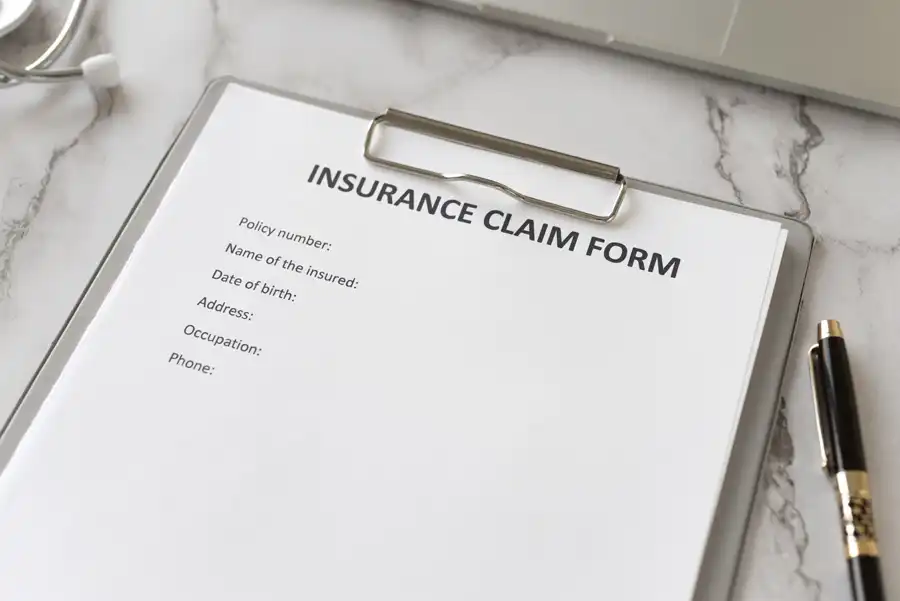This comprehensive Medicare Compliance Glossary is an essential resource for insurance adjusters and risk managers navigating the complex world of Medicare compliance. Tailored specifically to the needs of insurance professionals, it breaks down crucial terms, processes, and concepts into clear, practical explanations. From understanding various types of Medicare Set-Asides to grasping the intricacies of Section 111 reporting, this glossary empowers adjusters to handle claims involving Medicare beneficiaries with confidence and precision. By demystifying complex Medicare compliance terminology, it helps professionals avoid costly mistakes, ensure proper claim handling, and maintain regulatory compliance. Whether you’re a seasoned adjuster or new to the field, this glossary serves as an invaluable quick-reference guide for day-to-day operations and decision-making in Medicare-related cases.
A
Applicable Plan: That’s us – our insurance plan. We’re required to report certain claims involving Medicare beneficiaries under Section 111. It’s crucial to identify these cases early.
Assessment of Damages: Our bread and butter. When dealing with Medicare beneficiaries, we need to be extra careful in evaluating medical expenses. These assessments can impact Medicare’s involvement and our reporting obligations.
B
Beneficiary: Anyone entitled to Medicare benefits. Always ask claimants if they’re Medicare beneficiaries – it changes how we handle the claim.
BCRC (Benefits Coordination & Recovery Center): The Medicare entity we often deal with for coordinating benefits and recovering conditional payments. They’re our main point of contact for many Medicare-related issues.
C
CMS (Centers for Medicare & Medicaid Services): The big boss of Medicare. They set the rules we need to follow for compliance.
Conditional Payment: A major headache for us. If Medicare pays for something we should have covered, we’ll need to pay them back. Always check for these before settling a claim.
Conditional Payment Letter (CPL): An important document from Medicare listing payments they’ve made that we might need to reimburse. Don’t ignore these!
Coordination of Benefits (COB): A critical process for us to determine which insurer pays first when a claimant has multiple coverage sources. Getting this right helps avoid issues with Medicare later.
D
Demand Package: A comprehensive set of documents from Medicare detailing their payment history and reimbursement demands. We need to review these carefully to ensure accuracy.
E
Exhaustion of Benefits: When a claimant’s primary insurance coverage is used up. This can trigger Medicare to become the primary payer, potentially affecting our obligations.
F
Future Medicals: A tricky area in settlements. We need to consider Medicare’s interests for any medical expenses that might occur after we settle. This often involves setting up a Medicare Set-Aside.
I
Initial Determination: Medicare’s first decision on a claim. If we disagree, we need to know the appeals process.
L
Liability Medicare Set-Aside (LMSA): A fund we might need to set up in liability claims to cover future medical expenses related to the injury. It’s to prevent Medicare from paying for things we’ve already settled.
M
Mandatory Insurer Reporting (MIR): Our obligation to report claims involving Medicare beneficiaries to CMS. Missing these reports can result in hefty fines.
Medicare Secondary Payer (MSP): The golden rule – Medicare should be the secondary payer when we’re responsible. Always keep this in mind when handling claims.
Medicare Set-Aside (MSA): A critical tool in settlements. It’s an amount we set aside from the settlement to cover future medical expenses Medicare would otherwise pay for.
N
Non-Group Health Plan (NGHP): This category includes our liability, no-fault, and workers’ comp plans. We have specific reporting and compliance requirements for these.
O
Ongoing Responsibility for Medicals (ORM): Our obligation to pay for a claimant’s future medical treatments related to an incident. Reporting ORM accurately is crucial for Medicare compliance.
P
Primary Payer: In many cases, that’s us. We need to pay before Medicare does. If we don’t, Medicare might pay conditionally and then come after us for reimbursement.
R
Recovery Demand Letter: A letter from Medicare demanding we pay them back for conditional payments. Take these seriously and address them promptly.
Responsible Reporting Entity (RRE): That’s often us – the entity required to report claim information to Medicare. Understanding this role is key to meeting our compliance obligations.
S
Safe Harbor: Provisions that can protect us from penalties if we’ve made good faith efforts to comply with Medicare Secondary Payer laws. Knowing these can be a lifesaver.
Section 111 Reporting: Our regular duty to report claims involving Medicare beneficiaries to CMS. It’s a crucial part of our compliance efforts.
Set-Aside Allocation: The process of determining how much money to set aside in an MSA. Getting this right is crucial to protect both our interests and the claimant’s future medical care.
T
Threshold Reporting: The minimum dollar amount that triggers our duty to report under Section 111. Keep an eye on these thresholds as they can change.
Total Payment Obligation to Claimant (TPOC): The total amount we’re paying in a settlement. This often triggers our reporting obligations, so calculate it carefully.
W
Waiver of Liability: A situation where Medicare may waive its right to recover conditional payments. Understanding when this applies can be beneficial in claim resolutions.
Workers’ Compensation Medicare Set-Aside (WCMSA): A critical tool for us in workers’ compensation cases involving Medicare beneficiaries. It’s a financial agreement that allocates a portion of a workers’ compensation settlement to cover future medical services related to the work injury, illness, or disease. The goal is to prevent Medicare from paying for work-related medical services when a settlement is supposed to cover those costs.



